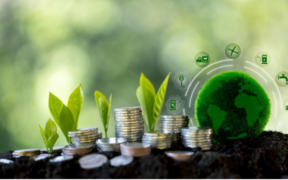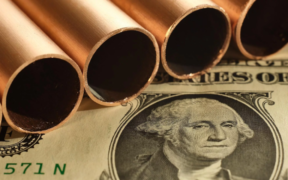
Accelerating the transition to a green economy is a necessity. This column argues that the green transition will create trade-offs for central banks. Phasing out polluting technologies is likely to temporarily slow down productivity growth, thus creating inflationary pressures. If central banks choose to ‘look through’ and let inflation temporarily rise, inflation expectations may de-anchor. […]

The shift from fossil fuels to renewable technologies may render the global economy less oil-intensive and more metals-intensive. This column examines how metals supply shocks propagate through production networks and impact inflation. It finds that copper supply shocks have significant and persistent effects on both headline and core inflation. In comparison, oil supply shocks mostly […]

Incumbent banks often maintain an informational monopoly over their borrowers, making it difficult to switch to competing lenders or negotiate better terms. This column argues that deposit relationships could be a solution, thereby contributing to more competitive lending markets. It shows that firms with deposit relationships at competing banks are significantly more likely to switch […]

